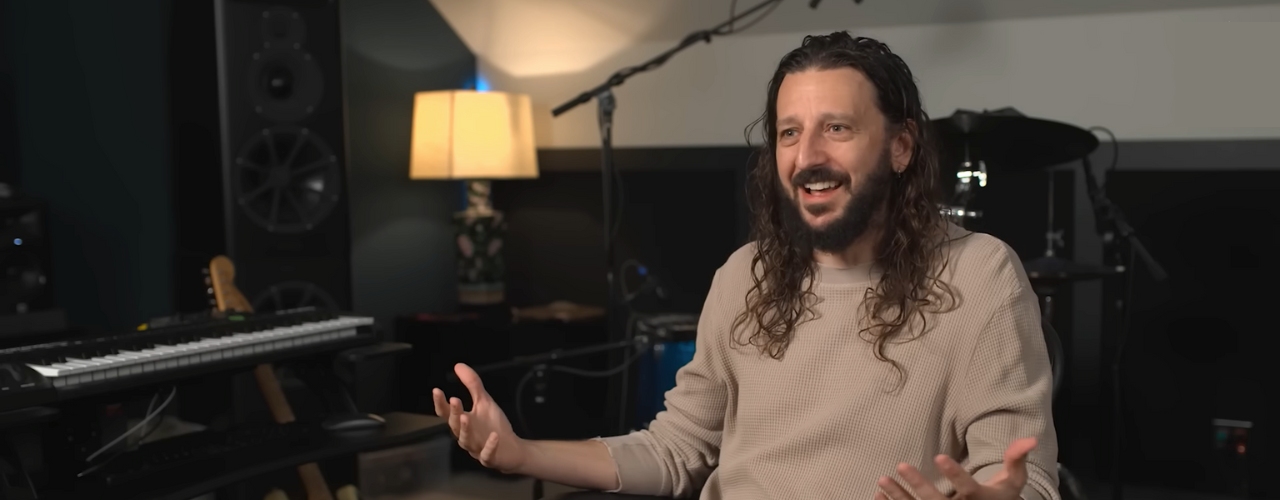
7 Bad Music Producer Habits and How to Fix Them
Whether it's in the studio or in the DAW, we all have bad music producer habits. Which ones are you guilty of?
Bad music production habits creep up on us. They begin rather innocently. You start with a small offense, like nudging up the volume during a production session. Next thing you know, you’re keeping open drinks on your studio desk, your mixer is always running in the red, and you haven’t finished a track since 2012.
In this article, we review seven of the worst behaviors you can have as a music producer, and simple strategies to counter them.
1. Bad posture
We’ll start with a softball. Modern music production requires that you spend a lot of time sitting at a desk in front of your computer. There’s a good chance you’ve left long studio sessions feeling crumpled: your back and neck sore and your shoulders rounded. Desk bodis a real thing and can lead to serious physical and mental issues down the line.
Solution: Keep your posture in check by taking timed breaks to stretch and straighten up. This will give your eyes and ears a needed break too. Prop your screen up so it is at eye level. You’ll avoid neck strain and unnecessary bending of your back. If you have moolah to blow—invest in a comfortable studio chair with proper support.
2. Comparing yourself to others
It’s understandable to want to be like your musical heroes. They’re all kinds of awesome and came up with great ideas before everyone else. But when being a fanboy crosses over to comparison, you can start to seriously chip away at your confidence. There is always someone who will have more experience, training, and access to expensive equipment. There’s no use in holding yourself up to an unfair standard.
Solution: We all have different advantages. Maybe you come up with complex rhythms in your sleep or write memorable melodies on the way to work. If you only compare yourself to other people, you won’t find yours. Follow your creative instincts. What can you work on that separates yourself from others? Build on that skill. It will be much easier and rewarding to track your improvement.
3. Unclear naming conventions
At some point, we’ve all had our desktops littered with files like cool_sound_9.wav. It's a big, ugly mess. But one that is easy to clean up. To start, group samples into folders based on tempo, timbre and instrument, or something that will still make sense to you in a year from now. Organize your tracks in folders by month, so you can easily find them again.
Solution: Apply this same logic to your DAW channels. After you settle from the initial rush that comes with starting a new project, label and color code your instruments so you know where to reach during the arrangement and mixing stage.

4. Unplanned studio sessions
If you leave your sessions too loose, you won’t get music finished. I’m all for spontaneous jams, but a studio schedule—just like a schedule for work or school—is needed to be productive.
Solution: Start with weekly goals, like finishing a track. Use each studio session for a specific task that will get you closer to completing that goal. Set the conditions for your own success. For example:
- Monday: improvising and collecting sounds
- Wednesday: arranging the best parts into a track
- Friday: first mix
- Sunday: review the mix and make edits
5. Starting, but not finishing music
DAWs have made it possible for anyone to make music. You don’t need a lot of money, special gear, or even theory to get started. What remains a bigger challenge is finishing music. Being a music producer is different than being an artist with a completed catalog of tracks. Finished material is what record labels, promoters, and concert bookers want from today's creators.
Solution: There is so much you can learn during the process of finishing a track that you’ll miss if you open up a new DAW session every time you hit the studio. To be clear—not every track you make has to be a hit. But if you don’t put in the time and effort over and over again to finish tracks, you won’t ever know if you can actually make one. And you probably can.
6. Not sharing your music
When you do finish tracks, let the world—or at least a handful of people—hear them. There are so many options for sharing music that you have no reason not to.
Solution: Start with your music friends. They’ll be able to give you specific feedback that dives into the techier side of things. “Boost the kick.” “Put a low-pass on your bass.” You get it.
Then, send your tunes to non-music maker friends. These people will make up the majority of your fanbase, so it’s important to hear to what they think. You’ll be surprised at how much insight you can get from people who don’t know even know what BPM stands for.
And if you’re not doing it already, get your music on every streaming platform available. The more people who hear it, the more chance for success. You never know who is listening on the other side.
7. Avoiding networking
Networking. What an ugly, corporate word, huh? For most producers, networking is a chore and takes away from precious studio time. I understand the feeling completely. But truth be told, going out and meeting music industry people is the best way to build relationships that help your career. Here’s how to do it.
Solution: Fire up your artist social media pages and tell people what you’re working on. Be active in your community. If you want to play live, ask people to book you for shows. Go to local concerts and talk to the crowd and performers. Musicians, producers, and artists, more than most other groups of people, want to connect.
Find people who can answer your questions about music production and help you in your path toward success, whatever that may be. Maybe you can help them too. Even if the relationship isn’t transactionional, you may just end up with a new music friend. And that’s never a bad thing.
Making a bad thing good
Bad music producer habits can be broken. It’s a matter of recognizing what gets in the way of your success as a music producer, and changing your behaviour for more positive results. Sounds simple enough, right?
Surround yourself with people who will support you and encourage you to hit your production goals. Keep track of your progress and be proud of your achievements.


